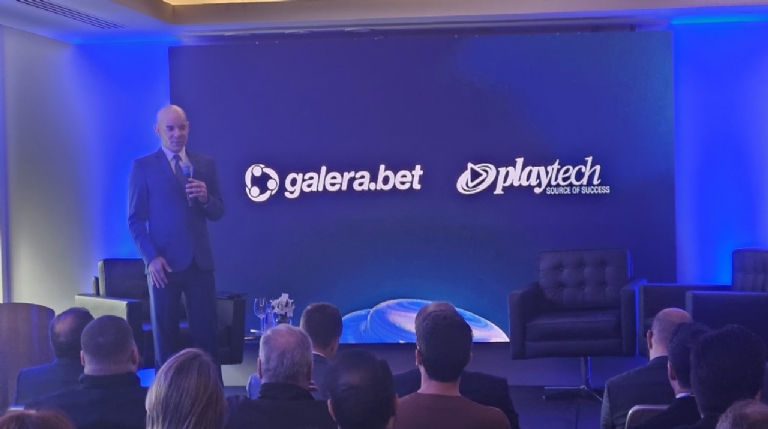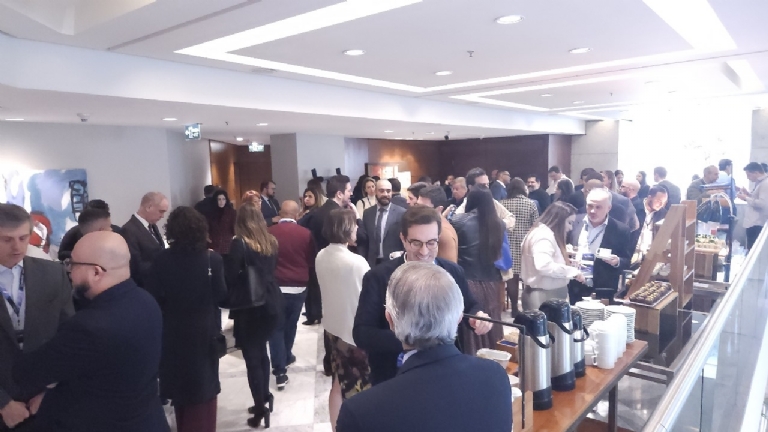

galera.bet held the "1st Forum on Awareness and Protection of Online Gaming Bettors" this Wednesday (10), featuring prominent experts such as Régis Dudena, Secretary of Prizes and Betting at the Ministry of Finance, Plínio Lemos Jorge, President of the National Association of Games and Lotteries (ANJL), Sérgio Garcia Alves, President of the Gaming Law Committee of the OAB/DF, and others.

In the opening of his presentation, Régis Dudena stated that "in the Brazilian federative model, legal regulation is enacted through a federal law of national application. The activity is a public service and has legal repercussions."
"By legal determination, we are currently in a 'grace' period that runs until December 31, 2024, as stipulated in the legal documents issued so far, through the law itself and the ordinances already published."
When discussing the role of public administration in regulating consumer relations in online betting and gaming, Dudena emphasized the importance of collaboration between the national regulator, associations, and operators to ensure a safe and responsible market.
He also highlighted the critical role of cooperation between the Secretariat of Prizes and Bets and other regulators, such as the Central Bank, "which will be crucial regarding financial transactions between bettors and operators. Interaction with the banking system will be effective in identifying financial flow blockages. Companies that are not regulated will not have access to money and will lose interest in operating illegally." For Dudena, this aims to ensure greater control and protect consumers.
Regarding controls, the secretary pointed out a recent episode involving Loterj and the National Telecommunications Agency. "The involvement of Anatel indicates that we may have them on our side to take down websites through a command from a national regulator," as a means to curb unlicensed operations that do not meet consumer protection objectives. He reinforced, "Through technology, we will seek to take down sites that do not have the bet.br domain."
"Everything we have done from a normative perspective has not been done behind closed doors but in contact and close cooperation with other entities, such as the Central Bank, Coaf, and other entities," he said, stressing that "consumer protection aspects are fundamental for the market. Regulation benefits the bettor, and operators must monitor and report possible cases of gambling addiction."
Sérgio Garcia Alves, President of the Gaming Law Committee of the OAB/DF, and lawyer Fabiano Jantália, a regulation specialist and one of the most knowledgeable experts in the sports betting and gambling sector in Brazil, participated in the panel with Dudena.
In his speech, Sergio Garcia Alves highlighted the regulatory advancements and the contributions of OAB gaming committees from some states on relevant topics for safe and responsible gaming practices incorporated into Law 14,790 and the ordinances of the Secretariat of Prizes and Bets. "This partnership is essential in contributing legal aspects to public administration. We commend the Ministry of Finance and the Secretariat of Prizes and Bets for listening to us over the past few years."
He also cited cases involving regulatory agencies, noting their importance in any sector's regulatory process, contributing to adopting clear rules that protect consumers.
Fabiano Jantália discussed regulation, consumer relations, and success stories from other segments that underwent regulation in Brazil. Regarding state operations, he was emphatic in recalling the Supreme Federal Court's decision on the Union's autonomy to regulate the gaming and sports betting sector. "States do not have the authority to legislate on the matter. This is not up for debate; it is in the hands of the Union," he stated.
The lawyer emphasized that consumer protection involves the sector's maturation, and it is "important to invest in educating bettors so they know what they are doing and understand that betting is not a way to make money but entertainment. All rules must be very well explained to users of betting sites to ensure they have the necessary security to continue enjoying themselves."

In the panel on legal and regulatory aspects of consumer protection, jurist Fernando Capez and the President of the National Association of Games and Lotteries (ANJL), Plínio Lemos Jorge, spoke.
Fernando Capez highlighted the importance of the moment Brazil is going through with the regulation of sports betting and online gaming. "There are great advantages to bringing gaming out of illegality and into legality, and this is not up for debate. We know there are risks, especially to minors, that must be considered to protect users."
Plínio Lemos Jorge began his speech by mentioning the end of casinos in Brazil in 1946, noting "how it drastically ended so many jobs and investments. Additionally, it ingrained in the minds of Brazilians that gaming is 'the devil's work.' We have been living with this since that time, which turned our thriving industry into a villain."

He pointed out that today there are over 5,000 sports betting points in Brazil and that only regulation will provide direction for the activity, legal security for operators, and the offering of responsible and safe gaming for bettors.
For him, there are still issues to be resolved, such as the recent inclusion of games in the Selective Tax, which is set to be voted on in Congress as part of the tax reform.
"Taxation is already high, and with this new tax, it will be very difficult to operate, and many sites will not seek a license and will continue operating without paying grant fees, taxes, and will not collect tax on bettors' income," he pointed out.
"This will lead bettors to seek illegal operators who offer higher odds because they do not have tax responsibilities. This is very harmful to the bettor, who will have no protection and no one to complain to," he asserted, stating that "honest betting sites have this responsibility and can offer security to their users."
"As an association, our responsibility is significant, and we are starting a movement for ANJL to be a certifier of legal and responsible betting sites. We are reaching out to various sectors of society in this regard to combat illegal gaming. Thus, bettors will be able to consult not only Reclame AQUI but also ANJL to verify the compliance of betting sites where they wish to register," he announced.
Plínio revealed that in the coming days, ANJL will launch the campaign #jogoélegal. We want to show that gaming is legal from the perspective of being entertainment and not a way of life, investment, or family destruction. It is also legal from the standpoint of legalization and licitness.
Source: GMB